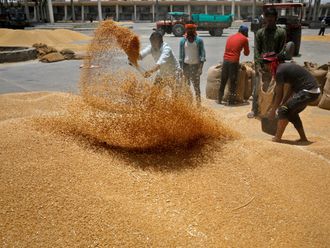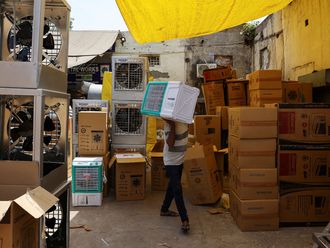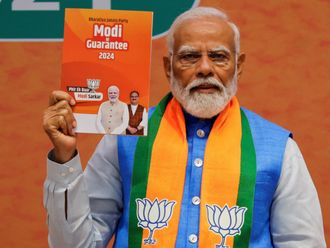The phrase ‘making history’ is easily one of the well-worn clichés in the world of sports journalism. However, no Indian sports fan would disagree with it when it came to young Jeakson Thounaojam’s feat of scoring the first and only goal for India in any Fifa World Cup – which could well be the only one in the ongoing Under-17 showpiece back home. Okay, they were not a complete embarrassment, but nevertheless failed to log a single point as their journey ended in the group stages on expected lines. Thursday’s 4-0 defeat to Ghana saw them exit the tournament with three losses.
Over the past week or so, I have often been prodded – albeit in good humour – about the big deal being made on the social media about the performance of the Boys in Blue. OK, they were not a complete embarrassment, but nevertheless failed to log a single point as their journey ended in the group stage along expected lines.
This is where one needs to put into things into perspective, both in terms of India playing hosts to its biggest ever football extravaganza as well as the performance of Luis Norton De Matos’s boys on the pitch. It’s difficult to fathom how one of the emerging economies of the world, which flexes its muscles in cricket, has neither hosted nor played in any of the 77 Fifa World Cups held so far – including men and women’s events in senior and age-group football.
The sense of wonder about the achievement perhaps explains itself here. Indian football, which is attempting a makeover by running a clone of the iconic Indian Premier League (IPL) of cricket for the last three years, has been going around in circles for nearly the last
50 years.
From being the bronze medallists at the 1970 Asian Games in Tehran, the country’s performance graph in the international arena had shown an irreversible dip – so much so that supremacy among it’s SAFF neighbours is considered the benchmark now. They have, of course, qualified for the Asian Cup for the second time in last decade and shown the odd sparks in club football, but it was only as hosts of a world championship which held out a realistic chance of any of their teams playing the World Cup.
The challenge before Amarjit Singh Kyam & Co had then been a daunting one. India were the only country among the 24 participating nations who had a direct entry as hosts – while the other age-group teams had fought their way through the gruelling qualifying battles. The task for the talent spotters of All India Football Federation (AIFF) was an onerous one as they assembled the squad with random scouting, one of which rounds was also conducted in Dubai.
Compare this with some of their peers, who are already stars in their own right. The England team boasts of the much-talked about Angel Gomez, who has already made a bow for the senior Manchester United team, Phil Foden (Manchester City) and Jadon Sanch (Borussia Dortmund) already being referred to the Young Trinity of English football.
There is certainly hope that India may have finally turned a corner – both as competent hosts and in throwing up a bunch of raw talent. One will have to wait and watch if the boys – mostly coming from underprivileged background as they are – find their comfort zone with good offers from ISL or top clubs or choose to push their boundaries.
The onus is also on the AIFF to ensure that their spadework does not go waste and it’s all back to square one!












